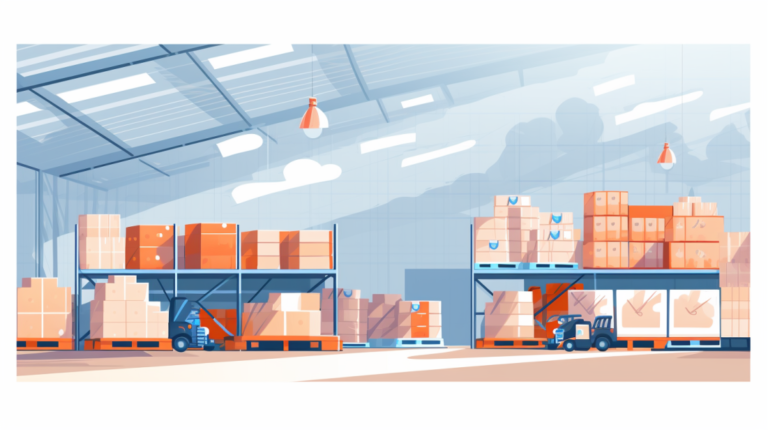How to Successfully Scale Your Small Business: Proven Strategies for Lasting Growth

I totally get it – you’re pouring blood, sweat, and tears into your small business, yet progress seems frustratingly slow. Trust me, my entrepreneurial journey began in a similar fashion—bag of dreams in one hand but moving at the pace of a snail.
That’s when I stumbled upon the secret to sustainable growth: scaling—a principle that even industry giants swear by. Buckle up for an exciting ride! This blog post will guide you through strategic steps to successfully elevate your small business towards unparalleled prosperity.
Key Takeaways
- Scaling a business is getting it ready for big growth. It needs good processes and clear goals.
- Growing means selling more, scaling means being able to handle more sales without too much cost.
- Signs you’re ready to scale include having a perfect product or service, stable operations, reliable team and increase in demand.
- To scale your small business: Define your purpose, make a full plan, improve what you offer customers. Streamline how you work using tech tools. Build a good team that can work well on tasks assigned to them.
- Have strong ties with your clients and other businesses helpful in growing yours quickly.
- Use the right technology like CRM systems to keep track of customers’ buying habits. Outsource non – core tasks so that key ones are not overlooked as the job load increases during scaling process stages.
Understanding the Concept of Scaling a Business
Scaling a business is like making the basics ready for big growth. It’s getting things in place so that your business can grow strong and steady. Think of it like this: You want to sell hot dogs, right? First, you need a menu with prices, cooks who make tasty food, places where customers can sit and eat.
These are all stuff you must have before opening more shops.
So what does scaling mean for businesses? It means creating good processes and operations from day one. This helps the business run well when there are lots of orders or new staff comes in.
Scaling also includes having a map of the future – clear goals that we’re working towards every single day! When we do these things first, our slicing machine won’t break down during lunch rush; instead our team will be happier, work will flow better and customers get their hot dogs faster too!
How Scaling Differs from Growing a Business

Scaling and growing a business are not the same. Growth means getting more people to buy your stuff. But scaling is different. It’s about setting up for longer growth.
In simple words, you grow by selling more products or services. You scale by creating systems that help your company handle more orders without adding too much cost.
Think of it like a seesaw on a playground. When we talk about growing, it’s like one kid jumps on at a time until the seesaw can’t take any more kids due to weight gain – this reflects how businesses add resources as they expand their customer base rapidly which might lead to extra costs hitting their profits hard.
But scaling is different! It’s like making sure the see-saw is strong enough right from start so that it won’t snap in half even when many kids bombard all at once without causing any increased costs – this showcases an ideal scenario where companies have prepared ahead of building efficient systems matching growth with output simultaneously maintaining good profit margin lines, hence sustaining themselves successfully in long run!
So remember while both process may seem similar yet they function differently under situations illumining significance of each other during unique phases along ventures’ journey path.
Signs You’re Ready to Scale Your Business
It’s good to know when your business is ready for bigger things. Here are signs that show you’re set to scale your business:
- Your product or service is perfect. People love it and demand more.
- You have a clear business map for future planning.
- There’s an increase in demand from your customer base.
- Your processes and operations run without trouble.
- You have a reliable team that can handle work well.
- Getting funds to grow won’t put the business at risk.
- You’ve got good sales growth forecast, which points to more income.
- You can fulfill more orders with your existing setup.
- The thought of growing larger thrills you rather than spooks you.
Crucial Steps to Scale Your Small Business

To successfully scale your small business, you must start by defining a clear purpose that serves as your guiding compass. Next, craft a comprehensive business plan outlining your growth strategies and future goals.
Refine and perfect your product or service to meet the highest possible standards to ensure customer satisfaction and loyalty. To increase efficiency, streamline all processes and operations in every aspect of your business.
Building a team you can rely on is key – hire people who share your vision and are committed to helping realize it. Learn how to delegate tasks effectively within this dynamic team so everyone knows their role and can operate autonomously when needed.
Prioritize enhancing brand visibility across different platforms; an attractive brand draws in more customers which in turn drive sales up meanwhile fostering strong connections with existing customers promotes loyalty hence stability for unprecedented times of upheaval like economic downturns or pandemics increases longevity.
Develop networking skills since partnerships forged may yield collaborations enriching not only each other’s experience but also broadening perspectives on ways better serve target markets thus guarantee.
Define Your Purpose
Knowing your purpose is key to growing your small business. It sets the clear goal for your work and team. Your purpose gives you a map on how to make plans and choices. Goals with no clear aim can lead to confusion in daily tasks or even critical decisions.
Clear purposes also help build trust with customers and enhance their loyalty towards your brand. Apart from that, it lets you step back and look at the bigger picture of working “on” the business rather than stuck “in” it doing menial tasks.
So, stay focused on your real goal and work hard towards achieving it!
Develop a Comprehensive Business Plan
Making a full business plan is key. It’s like a roadmap for your business growth. In this blueprint, you lay down all the steps to reach your goals. Write down things like sales growth forecast and where to find money for new hires or tech gear.
A full plan sees both big picture and tiny details of how you will grow your business.
Perfect Your Product or Service
Making your product or service the best it can be is key. It needs to work well and solve a problem for your clients. The quality of what you sell should be top-notch. If not, fix any issues now before you try to grow.
To do this, listen closely to customer feedback. They will tell you what works and what doesn’t. Make changes based on this input to improve your offering continually. Delivering great value helps build trust with customers and stands out in the market.
Streamline Your Processes and Operations

Streamlining processes and operations is key in scaling a small business. Here’s how to do it:
- Make your steps clear. Each part of your process should have a distinct purpose.
- Get rid of what doesn’t work. If something brings you down, stop doing it.
- Use technology that helps. This includes tools for tasks like keeping track of money or talking with customers.
- Educate your team on the updated ways. Everyone should know the best way to do their job.
- Keep improving things. You can always find better ways to do stuff.
Build a Reliable Team
A good team is key to a growing business. You need people you can trust and rely on. It’s not just about hiring staff. Building relationships with partners and suppliers matters too.
People who show loyalty to your business help build customer trust. Plus, it makes service better and faster for clients. Delegating tasks let you focus on bigger stuff instead of daily chores.
Tasks get done quicker when the right person does them! Your aim should always be to work “on” the business, not just “in” it.
Learn to Delegate Effectively
I give tasks to my team members who are best at it. I make sure they know what needs to get done and when. Trust is key in this step. It’s important that they feel confident doing their jobs without me hovering over them all the time.
So, it helps to set up systems and rules for how things should work. This will ensure our team finishes tasks well and on time as we scale our small business.
Enhance Your Brand
Your brand tells your story. It shares what you do and how you do it. An improved brand pulls in more customers. You need to build a strong brand. This sets you apart from others who sell the same things as you.
Loyal, happy clients help boost your brand too. They spread good words about what they bought from you. Their support helps other people trust in your product or service very quickly.
Connect with Your Customers
Having strong ties with your customers matters. Happy customers buy from you again and again. They also tell others about your products or services, bringing in new business for you.
Show them care and respect to build customer loyalty – they’ll feel valued, which is good for business sustainability! Use feedback from them to better your product quality or tweak your processes.
This way of building client relationships will help in scaling a business successfully and gives you an edge over others in the market.
Develop Networking Skills
I learned how key networking skills can help my business. It has let me meet new people in the same field. I get to share thoughts and gain new ways of doing things. From this, I made friends who have helped grow my business a lot.
They shared their ideas and needs which were very helpful for me.
Utilizing Technology and Outsourcing for Efficiency

Adopting relevant technology can streamline your operations and boost productivity. Outsourcing non-core tasks to specialized firms will free up valuable time, allowing you to focus more on strategic business growth strategies rather than get mired down with routine tasks.
By harnessing these two elements effectively, your small business is better positioned for efficient scaling and sustainable success.
Invest in Relevant Technology
Buying the right tech tools can help your small business grow fast. Tech tools like computers, servers, and software make work easier. They also save time and cut costs by doing things quicker than people can.
For example, using a tool called a Customer Relationship Management (CRM) system helps keep track of your buyers. It tells you what they buy and when they buy it. This makes selling to them in the future much simpler.
Another good tool is a sales management system that tracks orders from start to finish.
One more thing to think about is getting gear for communication like phones or video call equipment if your team works remotely. Your workers will need to stay connected with each other at all times.
You don’t always have to get the priciest tech though; pick what fits best with where you see your company going in the next few years! Spending money on stuff you won’t use just burns cash away so be smart about these choices.
Outsource Non-core Tasks for Efficiency
Scaling a small business may mean more work. Doing it all by yourself can be hard. You should learn to let go of tasks not key to your business.
- Write a list of all jobs you do every day.
- Look at the list and see which jobs are most key to your business.
- Find ways to give other jobs to skilled people outside of your company.
- You could use Dialpad, for example, as it is useful and easy.
- It handles phone calls, video meetings, quick messages, and texts.
- This gives you more time to focus on what matters most for your business growth.
Securing Capital for Business Expansion
You need money to grow your business. This is not always easy but it’s a must-do step in the journey of scaling a business. Here are some ways you can do that. First, you could enter contests like the FedEx Small Business Grant Contest.
Winning this will give your business more funds. Other options may include seeking out bank loans or lines of credit for extra cash flow support when needed.
If your best bet lies in finding partners who believe in what you’re doing and are willing to invest financially, then go for it! Be ready with a solid pitch outlining why they should join hands with you on this ride towards growth.
Some businesses also opt to use Shopify Capital – an option worth exploring if online sales drive much of your revenue.
But remember, getting more money isn’t just about buying shiny new equipment or hiring more staff; it’s about making smart choices that fuel efficient and sustainable business expansion plans.
Importance of Adapting and Innovating in the Scaling Process
Adapting and innovating play key roles in the scaling process. Things change fast in the business world. To keep up, we must be ready to adapt. We must also come up with new ways to do things.
This keeps our business design fresh.
For example, let’s say your team starts using a new software tool for tasks. At first, it might feel difficult to use. But as time goes by, everyone will get used to it. This is an example of adapting.
Conclusion

No matter the sizes, all businesses can grow. Change your views and make a strong plan. With time, effort, and right moves, you will see success in scaling your small business. Never stop learning and leading; this is the way to lasting growth.
What E-commerce Strategies Should I Implement to Scale My Small Business?
Implementing effective e-commerce strategies for small businesses is crucial for scaling. Firstly, investing in a user-friendly website with seamless navigation and secure payment options is paramount. Optimizing your online store for search engines and advertising through social media can boost visibility. Offering personalized customer experiences, utilizing email marketing campaigns, and fostering customer loyalty are also essential to drive sales and ensure growth.
FAQs
1. What are some ways to scale my small business?
You can grow your small business by increasing revenue, improving operations and processes, building a strong team, delegating duties well, and adapting to change.
2. How does the Business Mastery program help in scaling a business?
The Business Mastery program teaches skills like planning strategies for growth, creating innovative systems and overcoming barriers that slow you down.
3. Can technology help expand my business capacity?
Yes! Tech tools like marketing automation software or new PC hardware can fast-track tasks. It lets your staff focus on making more sales or giving A+ customer service.
4. How do I manage funds as I grow my small business?
To oversee money matters right: forecast expenses, find funding sources such as bank loans or lines of credit; consider capital investment wisely too!
5. What role do sales play in growing my small businesses?
Solid sales structures underpin successful growth! You need trackable leads along with an effective billing system where orders convert into paid bills on time.
6.What essentials should entrepreneurs know about expanding product lines and managing inventory?
Smart resource allocation is vital when adding products – think carefully about supply chains or order fulfillment procedures! Inventory management is key too so ensure good systems are set you don’t lose valuable stock.






